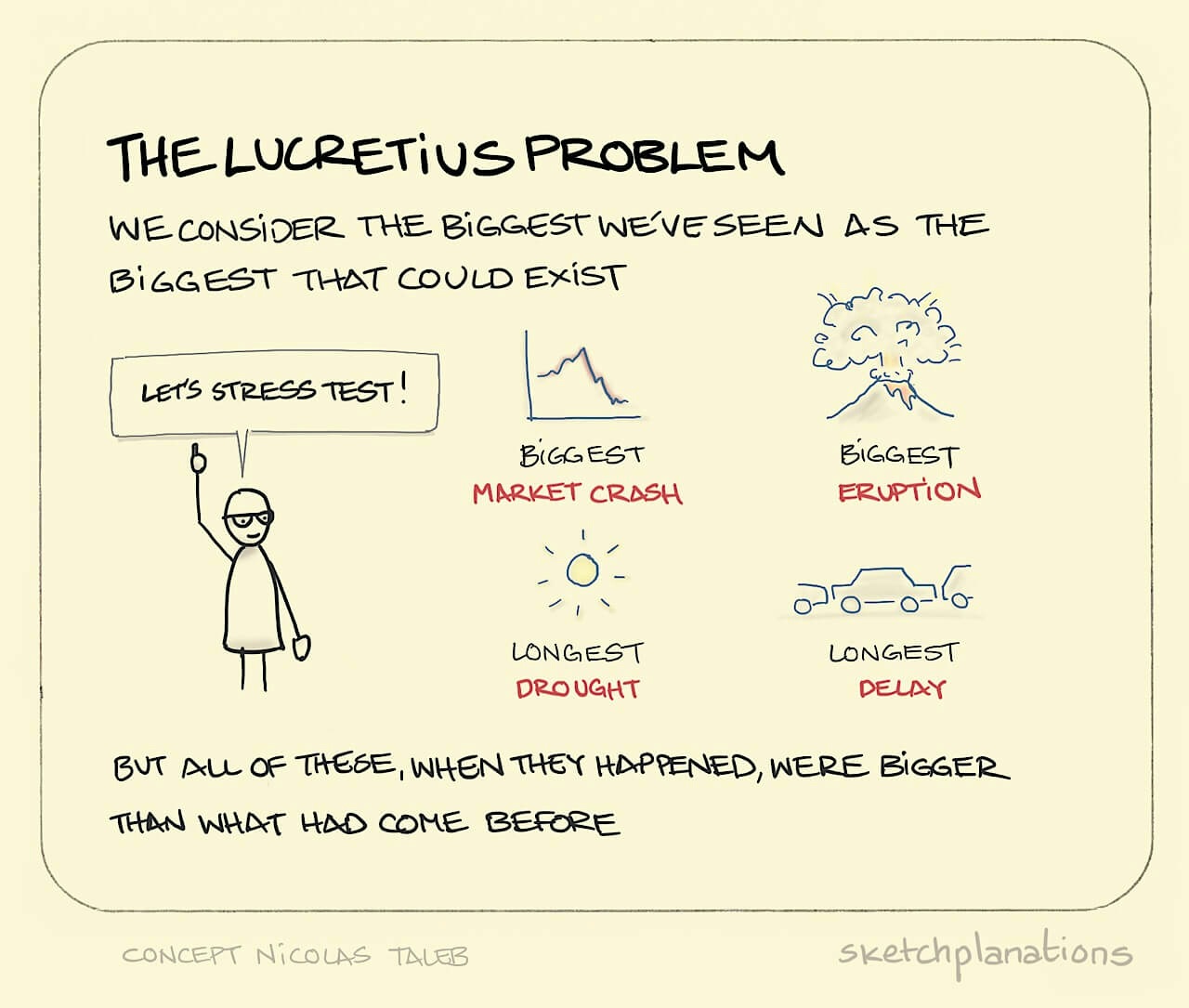The Lucretius problem

- Download
- Copied!
👇 Get new sketches each week
The Lucretius problem is our tendency to believe that the worst possible thing that can happen is the worst possible thing we know has happened. The name was given by Nicolas Taleb in his book Antifragile .
So, should we plan to stress test an investment portfolio, for example, we might test it against how it fared in the worst market crash. Or stress test a building for the biggest known earthquake or a nuclear reactor for the biggest known tsunami. And yet, when each of these events happened, they were bigger than what had come before, and the same could happen again.
Lucretius was a Roman philosopher who wrote that:
"The fool believes that the tallest mountain in the world will be equal to the tallest one he has observed."
Also known as The Lucretius underestimation.
See other sketchplanations on cognitive biases.

